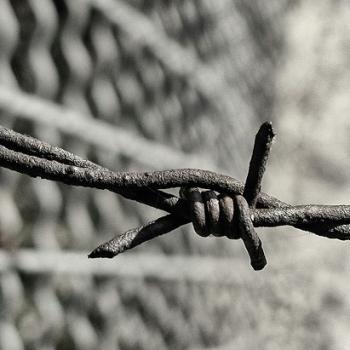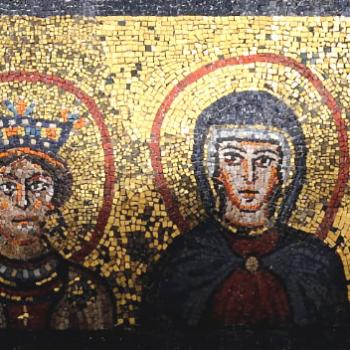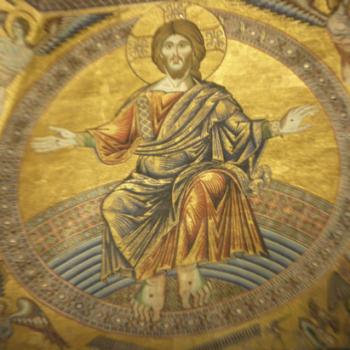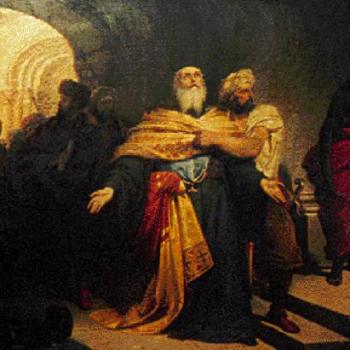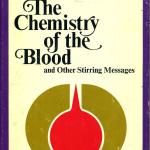I wrote on the President of the United States speech in Poland. A good friend, Christian, and academic dissented from my perspective. Now we hear from another friend and academic who is a Trump voter who dissents from my perspective from another point of view!
If nothing else, I hope we are a good example of hard disagreements among believers. I voted third party in the last election, but am generally a traditional Republican in a family that has been Republican since 1861. My second guest is a pro-life Christian who is a Democrat, but was no fan of Secretary Clinton and my third is a Republican who voted for Mr. Trump. I can vouch for the strong Christian commitments of both writers and the sacrifices both have made for their respective political points of view.
Dialog is unending this side of Paradise and a joy.
What larks!
Here is the unedited piece from a Trump voter on the President in Warsaw:
The Left is the Boy who called Wolf. To accuse President Trump of racism, anti-Semitism, and xenophobia for a speech that was manifestly anti-racist, pro-Semitic, and xenophilic is to destroy what little remains of their credibility.
The critics’ argument is premised on the idea that any reference to “Western” civilization or “Western” values, or to any threat from the “East” or “South” is inherently racist and pro-Christian. This is, of course, nonsense. The idea of an opposition between East and West dates back to the war of the ancient Greeks against Xerxes’ invasion. It was also prominent at the time of the battle of Actium, when Octavius defeated Egyptian and Syrian troops commanded by Mark Antony. The idea of Western civilization predates Christianity by several centuries, and the invention of racism by Darwinian anthropologists by several millennia. Western civilization is essentially Roman civilization. Cicero and Virgil define its essential shape and tone, involving a way of life in which we find the rule of law, a sharp distinction of private and public, individual rights and private property, intermediate institutions, including schools and corporations, anthropomorphic gods, freedom of debate and philosophical inquiry, and a literature extolling civic virtue and romantic love.
Trump’s reference to the East and South were clearly, in the context, directed toward Russia an ISIS, not toward some racial or geographical dichotomy.
Does Trump propose that Western ideas and values are superior to those of other cultures? I can’t find any such reference in the speech, in sharp contrast to the militant universalism of both GWB and Barak Obama. Trump instead speaks over and over about defending our traditional way of life from external threats. It is a ringing endorsement of national self-determination, not of liberal imperialism.
My own problem with the speech is that Trump failed to recognize the distinction between the Communist Soviet Union and the authoritarian and nationalist Russia of today. The latter represents many orders of magnitude less danger to the world than did the former. We need to revive Jeanne Kirkpatrick’s useful distinction between authoritarian regimes and totalitarian ones. The world’s only totalitarian regimes are North Korea, Cuba, and Venezuela, with Iran lying near the borderline. China and Russia have evolved into merely authoritarian regimes (as has Vietnam and former Soviet republics like Moldova and Uzbekistan). The Soviet Union’s regime was united and legitimized by an inherently expansionist ideology, which demanded global warfare against all “capitalists”. The nationalist regime of today’s Russia seeks only the protection of its national prestige and the traditional buffer zone of protection against Western European aggression.
Let me close by addressing the larger question, the supposed “Bannonism” of the Trump administration. Ethnic, ethnicity, ethnos—these are not curse-words, some litany of Satanism. The creation and recognition of the status of nations (ethnos is simply Greek for nation) is one of the fruits of Christian civilization. I recommend the work of Roger Scruton, especially The West and the Rest, and T. S. Eliot’s classic Notes toward the Definition of Culture.
No nation is reducible to a set of ideas or a propositional creed. That includes the United States. Trump critics pose a false dichotomy: either abstract universalism or fascistic racism. Like any other created reality, the ethnos can become an idol or absolutized into an ideology. The result is indeed a great evil—Nazis, Fascists, Tojo’s Japanese empire. This abuse of nationalism doesn’t tar all ethnicity, all love of one’s own people, as inherently evil.
Can we at least agree in rejecting “Blood and Soil” nationalism? Again, these ideas of kinship and historical homeland were distorted and abused by the Nazis, but all nations necessarily have an element of kinship and territorial continuity at their foundations. Here’s a thought-experiment, inspired by a recent Bret Stephens column in the New York Times. Suppose we deported all 300 million Americans, scattered them about the world, and replaced them by 300 million Chinese or Indians, each of whom passed a test of ideological purity, affirming all the propositions of the American creed. Would America survive? Self-evidently not.
The essence of nation is encoded in a body of tacit knowledge (to use Michael Polanyi’s phrase), in habituation to a form of life (to put it in Aristotelian terms). This is consistent with steady and significant immigration, but only up to some definite limit. Above that limit, national integrity is lost, and the nation-state does not survive.
*The writer suggest this argument as supportive of his views.
——————
I will conclude with final reflections tomorrow.



